
Remember
this post ?
OK, so this is the tutorial for the quilt or at least my process of creating it.
Hope that you will be able to follow my directions and that they will be useful for your projects;)

I started with this beautiful bundle of some of my favourite
Art gallery fabrics.

As the world of quilts and quilting is still very new to me, at the time, I had only one ruler available and that was
the Olfa 2.5" ruler.

I created my
first quilt without any ruler-I have just used the plastic nursery plate and a regular school ruler;)

So I just started with cutting the selected fabrics in 2" wide strips x WOF (in regular fabric 44/45"length-114 cm).

I had total of 52 strips.

So, I saw this technique on some blogs, called also
tube quilting and I was delighted as it seemed like a quicker way to obtain more half square triangles. I realized that there was even the special ruler for this, called "strip tube ruler", but you can always use some square ruler, rotated 45 degrees
and mark your seam allowance line (with some masking tape eventually) according to the desired size of the triangle.
HERE,
HERE and
HERE you can watch even the great videos about that technique.

So the principle is this: just place 2 strips, right sides together and sew on both sides with 1/4 seam allowance.

Cut along as you go, re-positioning your ruler from one side(one seam) to another.

From each fabric strip (44-45" wide fabric), with this cutting method from selvedge to selvedge, I obtained the 20 (eventually even 21) 2 1/2 x 2 1/2" HSTs.

I had total of around 600 HSTs.
Open, press and trim them.

Now you can play and create so many different blocks, here are some of our thoughts....




But, than I decided to do the simple repetition, by doing the 9 patch block and rotating it on
45 degrees.
Here is the construction of the block- in simple, 2 color diagram:

I also decided to play a bit with the colors and shades, rather than doing just random color patching.

What I did with the colors is to divide the HST(before making the blocks) in 5 groups:
1. palest shades
2. pale shades with some medium accents
3. medium shades
4. medium shades with some dark accents
5. darkest shades


I also organized the blocks in the same groups once they were made.

As you can see, by the end of my process, I got a new ruler to help me with cutting the fabric excess from the final
almost 6 x 6" nine patch block.

I love this happy pile of the blocks: there were around 70 blocks at the end.

I just played with organization of the blocks, creating the final result-quilt.

Luckily, I had a great, experienced assistant along the way to help me with my process;)

Eventually I decided that it might be good if I use some numbers and calculations to realize the size of the final quilt.
So, I ended with this scheme that is using 60 blocks-total.
( I am using just 4 variations of the colored block as easiest way to show the rows of blocks and cutting directions for edges):

So, you may see that you need to cut 5 blocks horizontally an 6 blocks vertically to obtain the edge pieces.

And this is some kind of variation in shades-giving the effect that I wanted to achieve here. Obviously, with more saturated colors:)
The finished size of the quilt is approx. 37 x 43".
Great size for my little helper:)


Here is my finished top and the finished quilt.

There are lot more of pictures in my
flickr set and some more info in my
previous post

Hope this was helpful.
If you have some project to share using this or any of my tutorials or patterns, please post them to my
flickr group.
I would love to see what you'll create:)
Katarina :)

Remember
this post ?
OK, so this is the tutorial for the quilt or at least my process of creating it.
Hope that you will be able to follow my directions and that they will be useful for your projects;)

I started with this beautiful bundle of some of my favourite
Art gallery fabrics.

As the world of quilts and quilting is still very new to me, at the time, I had only one ruler available and that was
the Olfa 2.5" ruler.

I created my
first quilt without any ruler-I have just used the plastic nursery plate and a regular school ruler;)

So I just started with cutting the selected fabrics in 2" wide strips x WOF (in regular fabric 44/45"length-114 cm).

I had total of 52 strips.

So, I saw this technique on some blogs, called also
tube quilting and I was delighted as it seemed like a quicker way to obtain more half square triangles. I realized that there was even the special ruler for this, called "strip tube ruler", but you can always use some square ruler, rotated 45 degrees
and mark your seam allowance line (with some masking tape eventually) according to the desired size of the triangle.
HERE,
HERE and
HERE you can watch even the great videos about that technique.

So the principle is this: just place 2 strips, right sides together and sew on both sides with 1/4 seam allowance.

Cut along as you go, re-positioning your ruler from one side(one seam) to another.

From each fabric strip (44-45" wide fabric), with this cutting method from selvedge to selvedge, I obtained the 20 (eventually even 21) 2 1/2 x 2 1/2" HSTs.

I had total of around 600 HSTs.
Open, press and trim them.

Now you can play and create so many different blocks, here are some of our thoughts....




But, than I decided to do the simple repetition, by doing the 9 patch block and rotating it on
45 degrees.
Here is the construction of the block- in simple, 2 color diagram:

I also decided to play a bit with the colors and shades, rather than doing just random color patching.

What I did with the colors is to divide the HST(before making the blocks) in 5 groups:
1. palest shades
2. pale shades with some medium accents
3. medium shades
4. medium shades with some dark accents
5. darkest shades


I also organized the blocks in the same groups once they were made.

As you can see, by the end of my process, I got a new ruler to help me with cutting the fabric excess from the final
almost 6 x 6" nine patch block.

I love this happy pile of the blocks: there were around 70 blocks at the end.

I just played with organization of the blocks, creating the final result-quilt.

Luckily, I had a great, experienced assistant along the way to help me with my process;)

Eventually I decided that it might be good if I use some numbers and calculations to realize the size of the final quilt.
So, I ended with this scheme that is using 60 blocks-total.
( I am using just 4 variations of the colored block as easiest way to show the rows of blocks and cutting directions for edges):

So, you may see that you need to cut 5 blocks horizontally an 6 blocks vertically to obtain the edge pieces.

And this is some kind of variation in shades-giving the effect that I wanted to achieve here. Obviously, with more saturated colors:)
The finished size of the quilt is approx. 37 x 43".
Great size for my little helper:)


Here is my finished top and the finished quilt.

There are lot more of pictures in my
flickr set and some more info in my
previous post

Hope this was helpful.
If you have some project to share using this or any of my tutorials or patterns, please post them to my
flickr group.
I would love to see what you'll create:)
Katarina :)





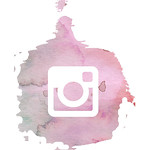

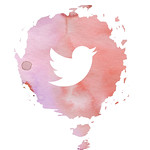


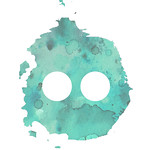

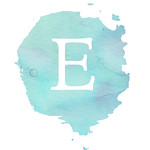



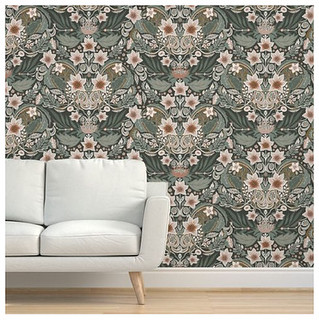







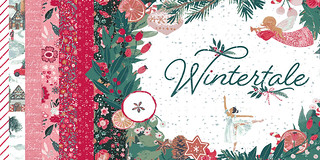
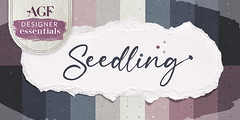
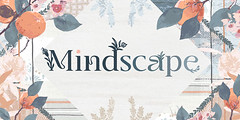

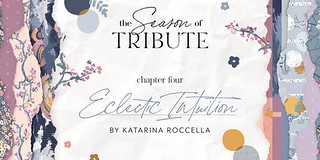
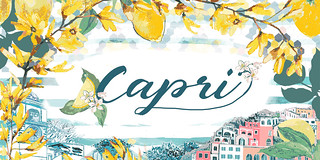
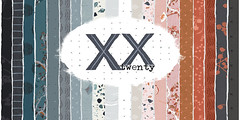


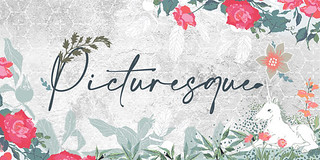


 GRID
GRID
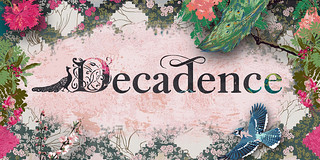 DECADENCE
DECADENCE
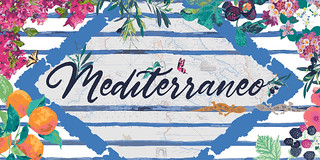

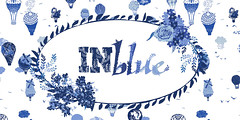
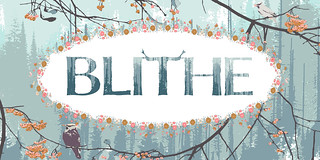

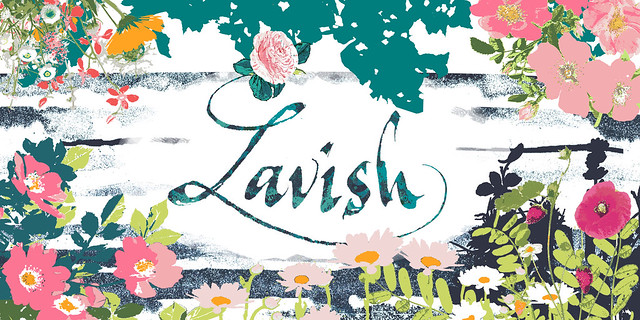
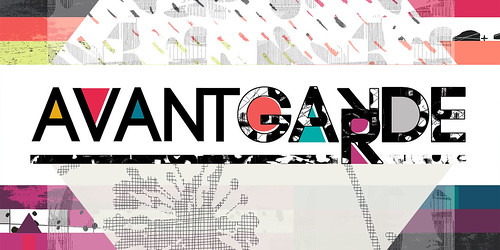
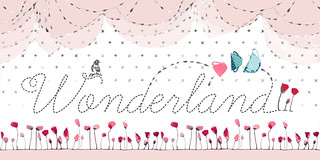
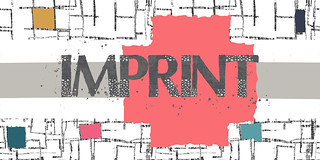
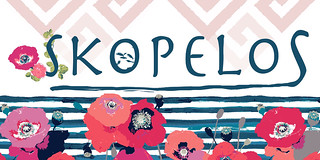
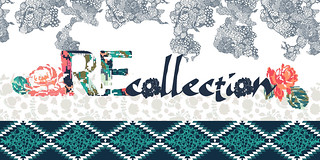
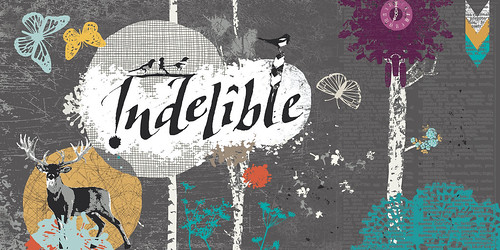







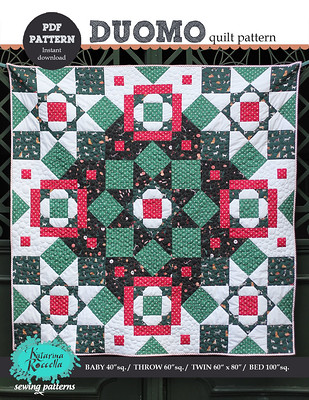
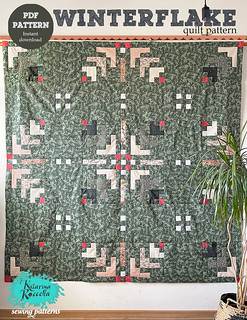
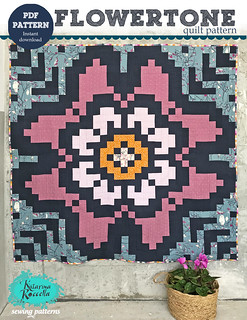




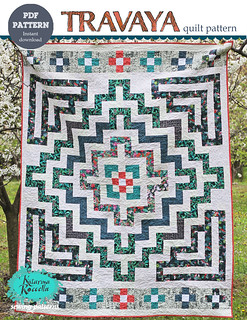

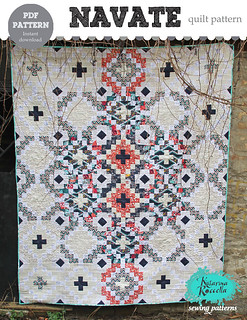
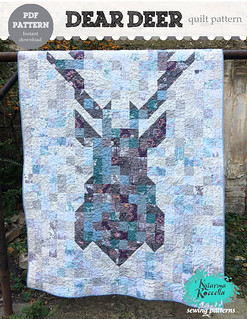

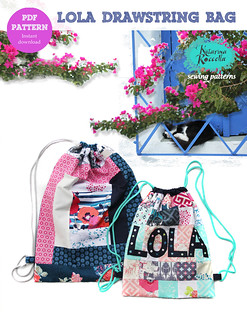
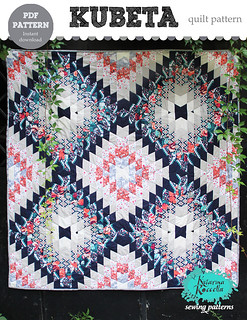
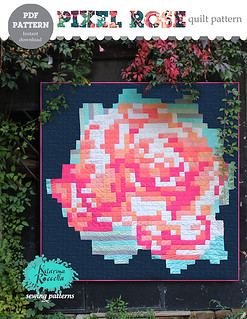
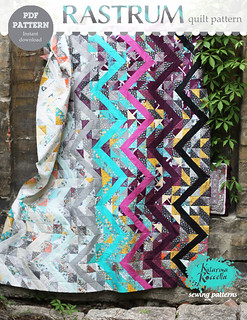
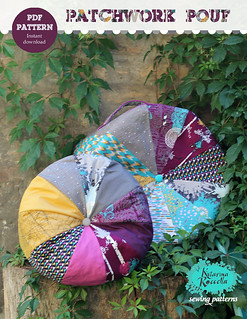
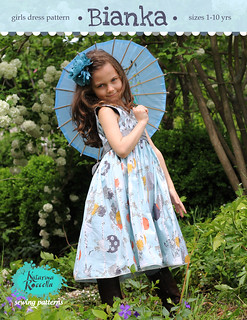
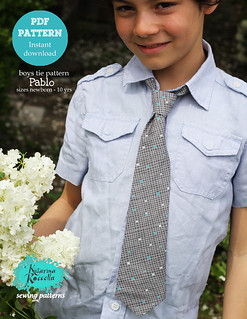



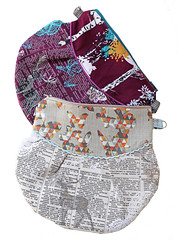
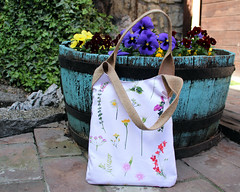

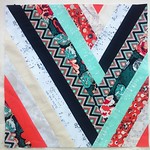








19 comments :
this is so beautiful!
This is so beautiful!
Your quilt ist beautiful. And the technic is great!
Liebe Grüße
Kerstin
I found your blog through Pinterest and I am so glad that I did! Thank you so much for sharing what you know! This is going to make my quilt making so much easier!
Such a beautiful quilt -- gorgeous colors and striking arrangement! Thanks for the tutorial - very helpful!
Really, really, helpful. Thank u! ��������
Such a clear tutorial, thank you. I love the quilt!
Amanda
Gorgeous quilt. Thanks for sharing your process.
Amazing!
This is so gorgeous! Great job. You make it seem much easier than I'm sure it is. :D Great tutorial. May have to try this when I'm feeling brave one day... or a few days. :)
Lovely quilt....thank you for the tutorial!
Thank you for a great tutorial. Your quilt is lovely.
Thanks for your tutorial, really looks like a great way to make HST and your colors were so pretty.
I absolutely love this! Can't wait to give this technique a try. Beautiful!
Simple instructions for a beginner like me! Beautiful
Beautiful! Nice work. I went on a hunt for the best HST method and found the Triangulations printables from Bear Paw Productions http://www.bearpawproductions.com/store-detail.php?cat=1&ID=2 They have a sample sheet you can print and try. You do a whole 8 1/2 x 11 sheet at a time so the HST's work up VERY fast and accurately. I love HST patterns but hate the drudgery of most of the slow methods of making the HST's...these printables saved me!
Love your quilt and this post. Thanks for a great explanation of the technique and your thought processes.
Such a wonderful quilt, lovely colors. I found another fabric store which is Broadway Fabrics.
Great Article Towel digitizing Nicee
Post a Comment